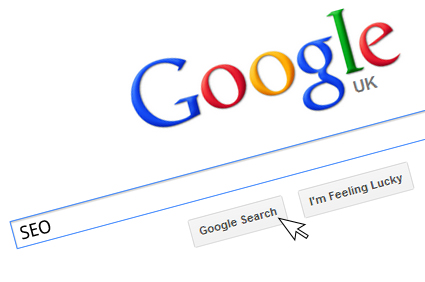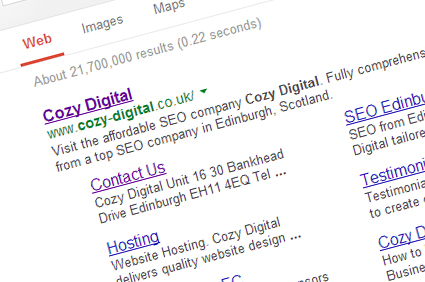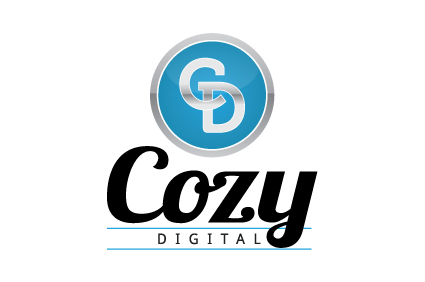 You might have heard the acronym: ‘SEO’ bandied about in conversations…
You might have heard the acronym: ‘SEO’ bandied about in conversations…
Perhaps you’ve seen it pop up in blog posts, articles and other sources online…
Whilst many sources exist to tell you about the myriad of benefits which an effective SEO campaign could potentially bring your way, fewer authorities on the subject actually take the time to explain what SEO is!
As an ethically-operating firm which specialises in SEO, we thought we’d take the time to spell out exactly what this blanket term means – and how a well-executed SEO campaign could be used to promote your online-presence.
The basics
First things first: What on earth does ‘SEO’ stand for?
The answer: ‘Search Engine Optimisation’.
Put simply, SEO is a broad term which encapsulates a series of techniques which can be employed as part of a campaign to drive more visits to a specific webpage, (or series of pages) by improving its search-engine results page rankings for a series of targeted key-phrases.
What is a key-phrase?
 If you’ve ever used a search-engine like Google or Bing before, you’ll already know what a key-phrase is, perhaps without even realising it!
If you’ve ever used a search-engine like Google or Bing before, you’ll already know what a key-phrase is, perhaps without even realising it!
In plain English, a key-phrase is the term that you type in when looking for content online via a search engine.
As an example, let’s say you were looking to get in touch with a cost-effective firm to help with your online marketing needs…
In such a scenario, you might type in terms like: ‘SEO’, ‘SEO Packages’, ‘Affordable SEO Packages’, etc.
In order to narrow your search down, however, you might end up using more advanced phrases, like: ‘Best SEO Company’, ‘SEO Packages UK’ or ‘Affordable Small Business SEO Packages’.
Generally speaking, wider-ranging, generic phrases will return back many more results than more specific, targeted key-phrases, which will be an important point to consider when planning out an effective SEO campaign.
What is a search engine results page?
 Whenever a user enters a specific key-phrase into a search engine and submits their request, they’ll immediately be presented with a search engine results page (SERP): This is a listing which displays results that the search engine’s algorithm has deemed relevant to the submitted key-phrase.
Whenever a user enters a specific key-phrase into a search engine and submits their request, they’ll immediately be presented with a search engine results page (SERP): This is a listing which displays results that the search engine’s algorithm has deemed relevant to the submitted key-phrase.
With the exception of paid links, search-engines will typically display the most relevant results higher up in their listings.
In cases where many results are returned, the links will be split across multiple pages, meaning that only a set number of web-page links will be displayed at any one time on a user’s screen.
Why is it important to improve your rankings in the search engines?
 If you are looking to promote your online presence to the masses, it is beneficial to return higher rankings in the search engines for your targeted key-phrases than your competitors.
If you are looking to promote your online presence to the masses, it is beneficial to return higher rankings in the search engines for your targeted key-phrases than your competitors.
In explaining just how important your rank can be, most industry experts will point towards stats which have been gathered over the years – for example:
It is estimated that over 90% of online purchases begin with some sort of search engine query.
- A number of sources indicate that web-pages appearing in the first page of search engine results receive nearly 90% of all search-generated traffic, with the links on each subsequent page returning significantly fewer clicks.
- The first page of any search engine results will typically feature ten positions: As you’d expect, the higher up a web-page appears on the first page, the more likely a user is to click through to the link: If you are lucky enough (or your SEO team’s skills are up to the task) to sit on pole position for a specific key-phrase, you can expect to receive over 40% of all traffic for that term!
Whilst these figures are in a constant state of flux, they serve as some indication as to how important it is to boost your search engine results rankings, if you wish to effectively promote your brand online.
How important is it to adopt an ethical approach to SEO?
You might be wondering why the ethicality of an SEO campaign is now an important consideration…
The answer is simple: Search engines care…
 Yes, that’s right! The biggest search engines really do care about how you go about promoting your online presence: Just like Santa Claus, they know when you’ve been naughty and when you’ve been nice: And they keep a list! (In this case, a black-list of websites which have been promoted in a dodgy manner);
Yes, that’s right! The biggest search engines really do care about how you go about promoting your online presence: Just like Santa Claus, they know when you’ve been naughty and when you’ve been nice: And they keep a list! (In this case, a black-list of websites which have been promoted in a dodgy manner);
There are two main ways to approach an SEO campaign:
- ‘Black-Hat’: Such an approach uses sneaky, underhanded techniques in an increasingly futile attempt to artificially engineer search engine results and essentially ‘cheat’ the system: But as with so much in life, ‘there’s no such thing as a free lunch!’
- 'White-Hat’: By taking an ethical stance and embarking upon an effective SEO campaign which owes its success to nothing more than hard-work, extensive research, relevant content and quality links, ‘White-Hat’ methods won’t fall foul of the search engines, which are programmed to value such an approach and disregard unethical tactics.
 Being ethical in your SEO approach doesn’t just allow you to take pride in the fact that you’ve ‘done the right thing’: Search-engines are constantly being improved to return only high-quality, relevant results to their users.
Being ethical in your SEO approach doesn’t just allow you to take pride in the fact that you’ve ‘done the right thing’: Search-engines are constantly being improved to return only high-quality, relevant results to their users.
With each (increasingly frequent) update to their algorithms, the biggest search engines are working round the clock to weed out and punish ‘black-hat’ techniques, whilst ‘white-hat’ tactics are allowed to flourish.
You might like to think of this as a type of ‘search engine karma’: Just make sure that your online marketing campaign takes the higher ground as you attempt to approach first-page Nirvana!
How long does it take before an SEO campaign’s effectiveness can be determined?
 Once an SEO campaign is underway, it can take some time before the search-engine results update to reflect the changes which have been carried out.
Once an SEO campaign is underway, it can take some time before the search-engine results update to reflect the changes which have been carried out.
The speed at which results can be seen is affected by how many times the search engines ‘crawl’ or check your website: For an established site which is already very popular, the search engines will check back on its pages much more frequently than a brand new website which has just been launched.
As a rule of thumb, a popular web page could start to see results within a couple of weeks, whilst a brand new website could take months to start returning results (if the SEO campaign has been conducted effectively).
A poorly planned or implemented SEO campaign could end up returning no noticeable results, or even cause a web-page to be ‘black-listed’, where it won’t even show up in results pages at all!
Can any organic SEO campaign guarantee first-page results?
In a word: No!
 Be wary of any SEO agency which promises that they can get you to the top of the search engines within a specific amount of time using organic methods (i.e. without using ‘Pay Per Click’ services).
Be wary of any SEO agency which promises that they can get you to the top of the search engines within a specific amount of time using organic methods (i.e. without using ‘Pay Per Click’ services).
However confident a company is of their abilities, search engine results are ultimately determined by advanced algorithms and a number of factors which are out-with the control of anyone except the decision-makers at Google, Bing, et al.
An ethically-operating SEO company will be able to give you estimates as to what they’d expect, but would never do anything as irresponsible as guaranteeing the results they can offer!
How can I learn more about SEO?
 As one of the leading authorities in the field of effective, ethical SEO, Cozy Digital is here to help with your online marketing needs…
As one of the leading authorities in the field of effective, ethical SEO, Cozy Digital is here to help with your online marketing needs…
Give us a call on: 0131 560 1790 for a friendly chat, or get in touch via our quick online contact form for a no-fuss free quote.


